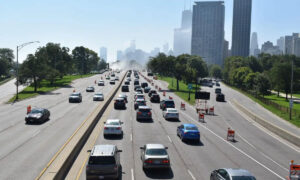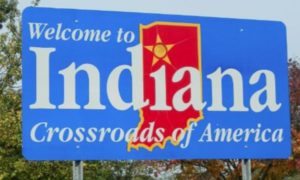
Patrons at Mutiny Information Cafe on December 2, 2016, in Denver, Colorado. Mutiny Information Cafe owners have said they intend to apply for a social marijuana use permit once the city’s Department of Excise and Licenses works out the particulars of how to implement Initiative 300. (Anya Semenoff, Special to The Denver Post)
Zoning, clean-air systems, walled patios and security measures among potential barriers say advocates of the voter-approved Initiative 300
Among the main concerns Tuesday night at a public hearing on social marijuana use at Denver businesses were dual consumption of pot and alcohol, cannabis odors, visibility and protecting children from exposure to the drug.
The hearing at the Wellington E. Webb Municipal Office Building before Ashley Kilroy, Denver’s executive director of marijuana policy, drew more than 100 people with dozens of speakers.

Brennan Linsley, AP File In this Dec. 31, 2012 file photo, Rachel Schaefer, of Denver, smokes marijuana on the official opening night of Club 64, a marijuana-specific social club, where a New Year’s Eve party was held in Denver.
For the most part, lines were drawn with Denver residents supporting current proposals for rules and regulations, which have not yet been adopted, and marijuana business entrepreneurs saying that the proposed rules and regulations are overbearing.
Sherri Way, president of the West Washington Park Neighborhood Association, said the group board voted 11-0 recently to support current proposed regulations. Still, she voiced concerns about potential visibility of smokers on outdoor patios and asked for vigilance of outdoor buffers and residential zones.
Gertie Grant, a West Washington Park longtime resident, said she walks near a marijuana grow operation and often smells strong odors from the business. She described it as a “skunk smell.”
“Please don’t let Denver become more of a skunk city,” Grant implored, asking for strong odor regulations.
Emmett Reistroffer, campaign director for Initiative 300 and a member of the city’s Social Consumption Advisory Committee, said “99 percent” of business people who were interested in applying for a social consumption license are “no longer interested” because the proposed rules are too restrictive.
“When I read the rules today, we can’t even get off the ground,” Reistroffer said.
Entrepreneurs will not spend thousands of dollars on clean-air systems, walled patios and security measures, among other potential expenses, when the potential for profit is questionable: “For what, to sell a cup of coffee?” Reistroffer asked.
Under proposed regulations, social consumption businesses will not be allowed to sell marijuana. Instead, patrons will bring their own.
Among a long list of proposed rules, designated consumption areas can’t be within 1,000 feet of child care businesses, drug and alcohol facilities or city-owned recreation areas and pools.
Such zoning will force social consumption businesses to the edge of the city in mostly industrial areas, opponents of the rules argued.
An ordinance already exists keeping such potential businesses 1,000 feet away from schools.
In November 2016, Denver voters approved Initiative 300, granting businesses the ability to apply for a permit to allow for adult marijuana consumption in designated areas.
Applications are now available, through the Denver Excise & Licenses office. But they’ll not be accepted and permits will not be issued until final rules and regulations are adopted. Final adoption could come this month, with permits being granted in July.
Among a long string of proposed application requirements are:
- National criminal background checks for on-site employees.
- Compliance with the Colorado Clean Indoor Air Act.
- Evidence of community support, including restrictions on advertising and operational requirements.
- A security plan to control and monitor potential criminal activity on the premises.
The initiative, which was passed by 53.7 percent of 168,995 voters, calls for a four-year pilot program allowing some businesses, including cafes and yoga studios, to seek permits.
“We’re still fighting to overcome stigma that is rooted in a history of prohibition, and now it appears the city is trying to keep consumers hidden and as far away from the mainstream as possible,” Reistroffer said.
An approved permit will be non-transferable and not valid for “any other location,” according to proposed regulations. The permit will also be considered a “revocable privilege.”
No permit would be granted to any business that serves alcohol.
After the November election, state licensing officials announced rules, effective Jan. 1, that banned marijuana consumption on a premises with a liquor license. In addition, already-licensed marijuana businesses, including dispensaries, cannot allow consumption on premises under state law.
“We have seen an overwhelming show of support for this initiative among Denver residents,” said Kayvan Khalatbari, an opponent of proposed rules. “While we are eager to finally see the program go into effect, we are concerned that not nearly as many businesses can participate as our campaign intended, as a result of new restrictions proposed by the city.”
Link – Denver Post




































